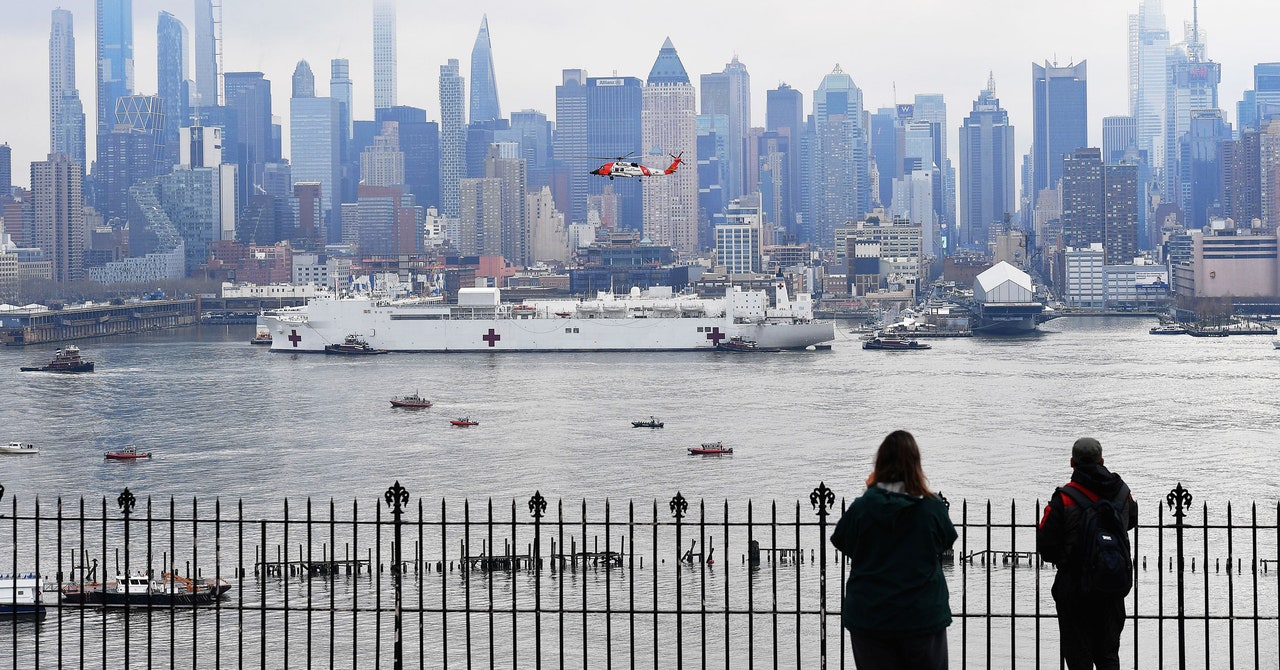Maybe it was when you were standing in line at the grocery store—not at the checkout stand, but in front of the grocery store, neatly arranged 6 feet apart from your fellow shoppers.
Maybe it was when you visited your grandma at the nursing home but had to stand outside her window, talking to her on your phone.
Maybe it was when you heard a New York City doctor talk about how her hospital got so overwhelmed with coronavirus patients, they had to bring in a refrigerated semi trailer to hold the dead.
Maybe it was when you saw that in the space of a week, jobless claims in the US went from 282,000 to 3.3 million, as the restaurant and bar and hospitality industries have imploded.
Maybe it was when you realized that toilet paper doesn’t grow on trees after all.
This is surreal, you said to yourself. Maybe over and over. You’ve heard your friends and family say it: just surreal. We in the media call it surreal all the time. Because it is surreal, “marked by the intense irrational reality of a dream,” so says Merriam-Webster.
Got a coronavirus-related news tip? Send it to us at covidtips@wired.com.
But what does it mean in scientific terms? The study of the surreal isn’t exactly an official field in psychology—it’s more Dali’s paintings and Kafka’s writings and a feeling. But there are good psychological reasons you’re feeling the way you do right now.
“The surreal part, I think, comes when you’re thrown into a situation that you’ve never been in before. It’s extremely disorienting,” says child psychiatrist Fredrick Matzner, who studied the psychological shock of 9/11. “If you’ve ever gone into an art museum, and you walk into a room with a big abstract painting on the wall, and look at it and you can’t tell what it is, you’ll feel anxious. You’ll feel uneasy.” But eventually you work it out: Ah, it’s a sailboat. The anxiety melts away. We humans, after all, are built to look for patterns, Matzner says, and resolving chaos into a pattern feels good.
Right now, many of the patterns we know and love have been obliterated. We can’t go to happy hour, we can’t get toilet paper when we want it, we can’t plan our annual trip. “My wife actually said this to me just a couple of days ago: ‘It’s like there’s no future,’” says Matzner. What she meant was we can’t plan for the future, because in the age of the coronavirus, we don’t know what we’ll be doing in six months, or even tomorrow. We’re stuck in a new kind of everlasting present. “And so everything seems completely otherworldly,” Matzner says.
The upending of our normal lives also obliterated the routines, however mundane,

